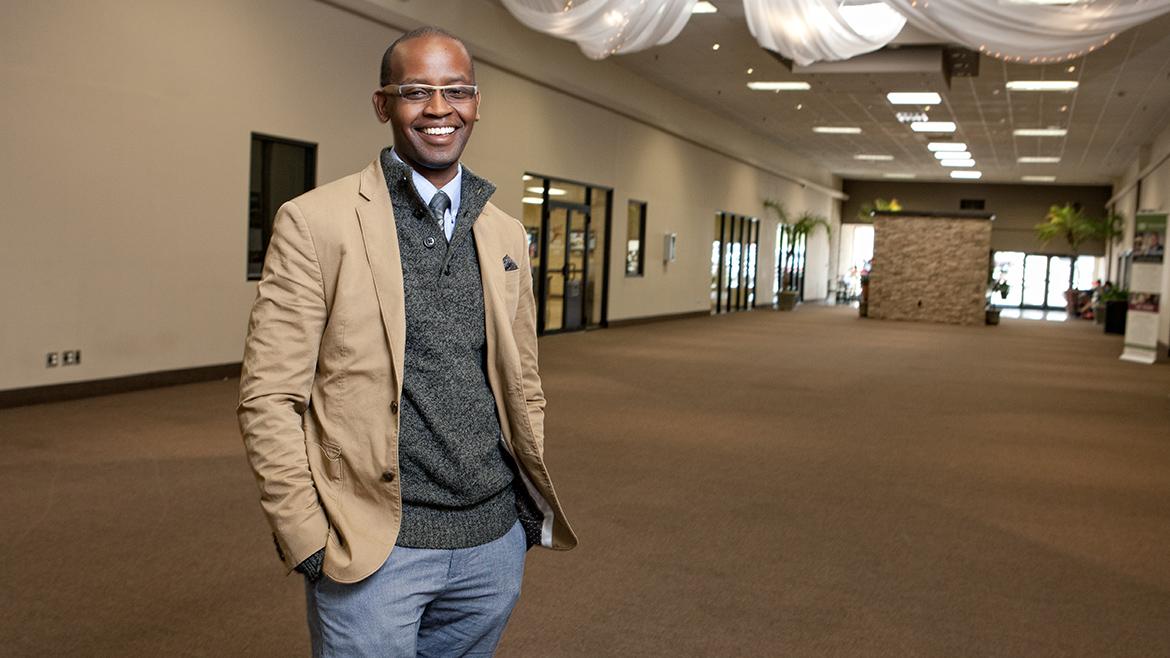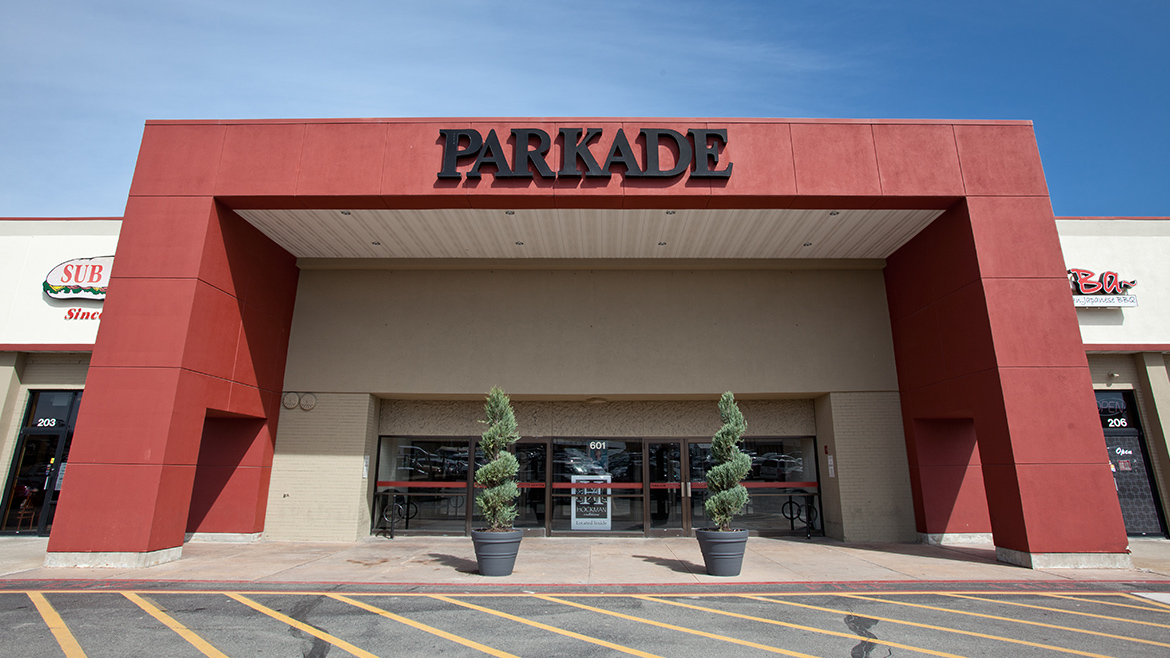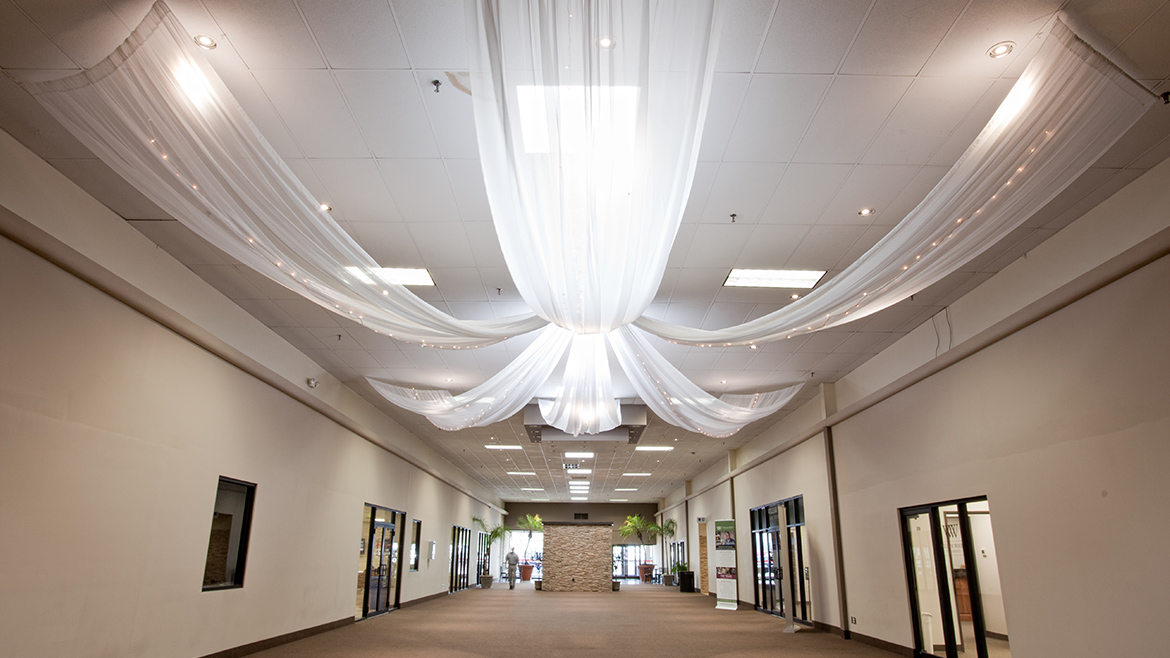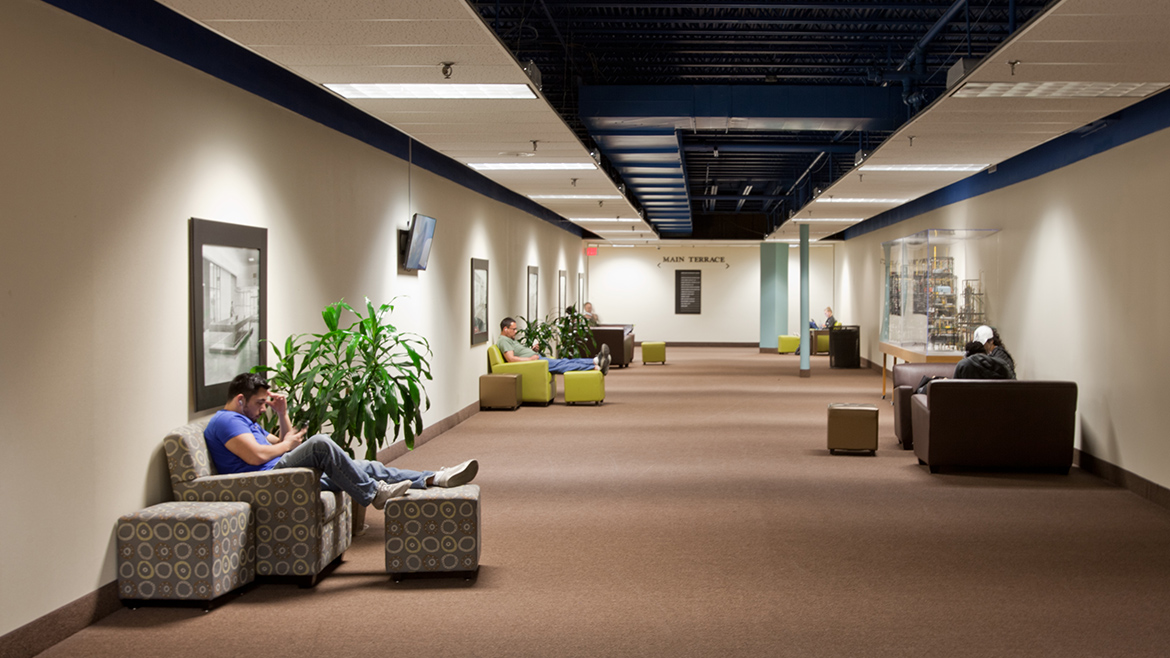
Parkade Center becomes a hub for education.
There’s only one place in Columbia to access five higher education entities under one roof.
It was a natural evolution for these institutions to gather at Parkade Center, says managing director Benjamin Gakinya. And Parkade’s new identity as an educational hub has helped occupancy rates reach 95 percent.
“It’s been a growth,” Gakinya says. “The expansion of the schools definitely takes up more space, which is great. Then just the ability of people, once they come into Parkade, they’re thinking it’s one thing, and when they walk in, it’s completely different. It exceeds their expectations.”
An Educational Hub
In 2010, Moberly Area Community College moved into Parkade. Today, MACC takes up 59,000 square feet of leasable space, 27 percent of the 215,000 square feet available for lease in Parkade.
Since then, Columbia College has added a recruiting office, William Woods University relocated its Columbia location to Parkade, Central Methodist University opened a satellite campus within MACC’s space, and Missouri Health Professions Consortium relocated its occupational therapy program to Parkade. MACC also has cross-partnership agreements with MU, Columbia College, and CMU to host classes in their space.
“I think that it was an accident,” Gakinya says. “I think that you get a big school like MACC, and it’s great and the school is expanding, and then, because MACC is a community college and is a feeder to all these other institutions, they also want to be [here].”
MACC president Jeff C. Lashley says the gathering of schools is less accident and more the result of decades-long partnerships with the other institutions. Columbia College has had an office on MACC’s Moberly campus for 20 years, and CMU shares space with MACC at the Macon location.

Lashley says having all those schools in one location helps students transition easily to the four-year institutions. Those partnerships are the new trend in higher education.
“I would say it’s unusual, if you look at a historical perspective,” Lashley says. “I would say it’s becoming much more common today. Higher education institutions — two-year sector, four-year sector — are looking for more opportunities to partner, looking for more opportunities to create pathways for students that are just really clear.”
The community college tried several locations before Parkade — space, parking, and lack of lab space were always challenges.
Not only has Parkade eliminated those challenges, Lashley says, the Parkade management has accommodated two expansions of the school, sharing renovation costs for expansion of the school’s technical programs. It’s also a convenient location for the 2,000 nontraditional and nonresidential students, with easy access to I-70.
“For the first time, we were meeting our student needs all in one place,” Lashley says.
Lashley sees possibilities to create more space for MACC’s technical programs.
“I do believe that Parkade would continue to accommodate our needs for growth as they occur, and I think there’s a lot of room for growth still,” he says.
Tenant Timeline
Built in 1965, Parkade Center was the original mall in the area, with major retailers like J.C. Penney and Kroger Foods. When the Columbia Mall was built in 1985, retailers began to relocate west or south, and Parkade suffered from a vacancy problem and hands-off management, Gakinya says.
In 2005, the Burnam family purchased Parkade, an anomaly for the storage-giant family. Gakinya came on in 2008 and started vacating the upstairs space for redevelopment.
The next biggest tenant, after MACC, is the USDA, which occupies 50,000 square feet of office space.

Dean Sherrill, owner of Midwest Rare Coins & Jewelry, has been a Parkade Center tenant for 20 years this month. He sells collector coins, gold and silver bars, and rare items. He’s seen many changes at Parkade since his start there.
“At that point, Parkade was probably half empty and my daughter was helping me in here,” Sherrill says. “It was kind of interesting — she would have her friends over and they would play in the hallways. And it was much quieter then.”
The center is defying national trends, says Carrie Gartner, executive director of The Loop community improvement district, whose office is located in Parkade. Many older shopping malls around the country become vacant.
“It’s become clear the news about [retailers like] J.C. Penney is that they’re no longer driving the retail market,” Gartner says. “So what happens is we as a community have to decide what we do with these big, vacant spaces. I think Parkade has done an excellent job saying, ‘We have a lot of space, and while we may not be the major retail hub in Columbia, what we can do is put that space to really needed use.’”
Today, there are 55 businesses in the center.
In The Loop
Gartner says Parkade can be a model for other vacant lots and properties in The Loop, from street-facing retail to draw shoppers in, to affordable rent, appealing to smaller businesses. It also encourages other property owners that building improvements can pay off financially, and there is a need for office space on The Loop.
“It’s setting a standard for what happens on this corridor,” Gartner says.
Gakinya says they’re currently creating new office spaces in the northeast corner of the building, and 10 to 12 spaces will be available, ranging from 200 to 1,200 square feet.

Gakinya says future goals would include building out some parcels in the parking lot, “If we could get the city to relax some of their standards on stormwater, which makes it cost-prohibitive for people to build out parcels.”
There’s a concept, he says, to build three more buildings in the expansive parking lot.
“It would be nice to add at least one, because of the increase of people wanting to lease space who need upstairs, exterior space, 5,000 square feet,” Gakinya says. “And I always have to send them away.”
Gartner agrees, and she emphasizes that discussions regarding stormwater changes and development changes have begun. Those hurdles could lower barriers to building and improve the private property along the corridor.
Parkade owner Cris Burnam sits on The Loop board. Gakinya says that, despite the controversy surrounding the inception of the CID, it has already helped businesses by burying power lines and planning for future improvements.
“[The Loop] has an impact on business,” Gakinya says. “I can’t measure what impact that has, but it has to impact their business, because a person’s first impression is going to be what they see and how they feel. So I think, overall, The Loop is going to be great for business.”


